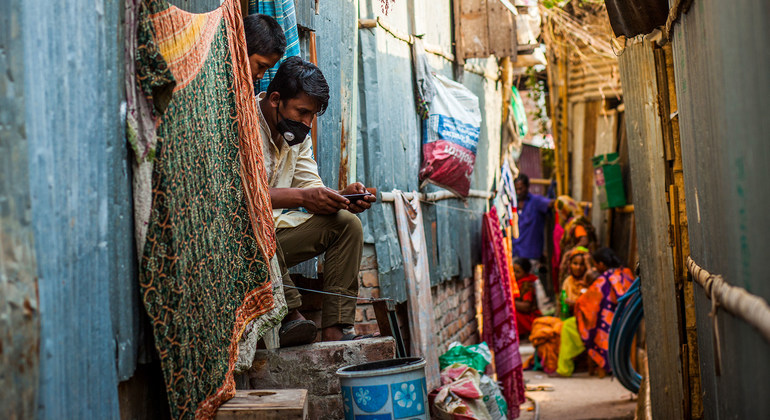“Unemployment has skyrocketed. Temporary business closures are becoming permanent. Rebuilding to pre-crisis levels of employment and output may take years”, Secretary-General António Guterres told at a virtual gathering of the Global Investors for Sustainable Development Alliance (GISD).
He spotlighted that as the poorest and vulnerable continue to suffer most – “from job losses and illness, from overwhelmed and insufficient health systems and a lack of social safety nets” – the world is being thrown “even more off track in our efforts to achieve the Sustainable Development Goals(SDGs).
Opportunity out of crisis
The UN chief maintained that rebuilding, must mean a “fairer, greener and more resilient global economy, that leaves no one behind”.
“There are positive signs that this moment could provide the opening for transformations that have been long in the making, but perhaps needed a push”, Mr. Guterres asserted.
Highlighting the 2030 Agenda for Sustainable Development as “the world’s agreed framework”; the Addis Ababa Action Agenda as a path to mobilize resources and the Paris Agreement on climate change, as the pact to rein in greenhouse gas emissions, he underscored the importance of aligning economic and social values.
“This means businesses acting in the interest of stakeholders, not just shareholders, and integrating sustainability into their operations”, he spelled out.
Shifting priorities
The Secretary-General stressed the importance of ensuring that environmental and social impacts are factored into all financial decisions.
He outlined how by shifting public international finance towards sustainable sectors, and aligning private financial flows to achieve Net Zero emissions, capital can be channeled into developing and emerging economies, “countering the forces of fragmentation that this crisis threatens to unleash”.
While acknowledging that COVID-19 has derailed many strategies and shifted the focus from long-term planning to immediate demands, Mr. Guterres asserted that it “underscores the need to think long term, build resilience and limit the impact of future crises.”
In closing, he foresaw that crises in general will become increasingly more multi-layered and complex, “stretching already limited resources and causing more widespread human suffering”.
“I call on you to seize this moment of crisis to shape our future for the better” concluded the UN chief.




